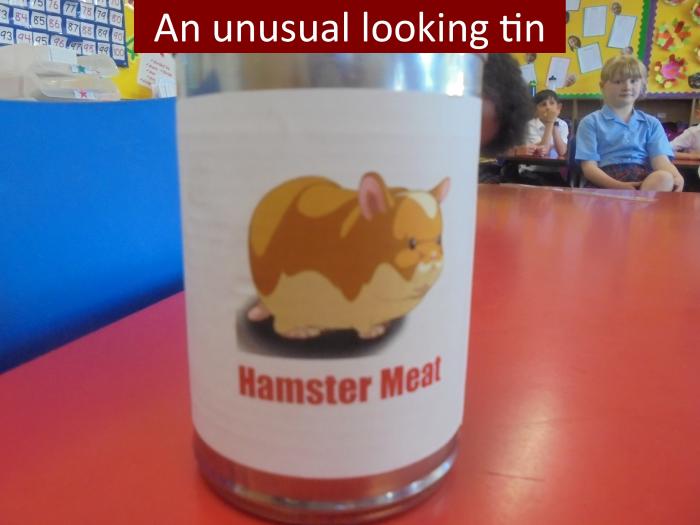
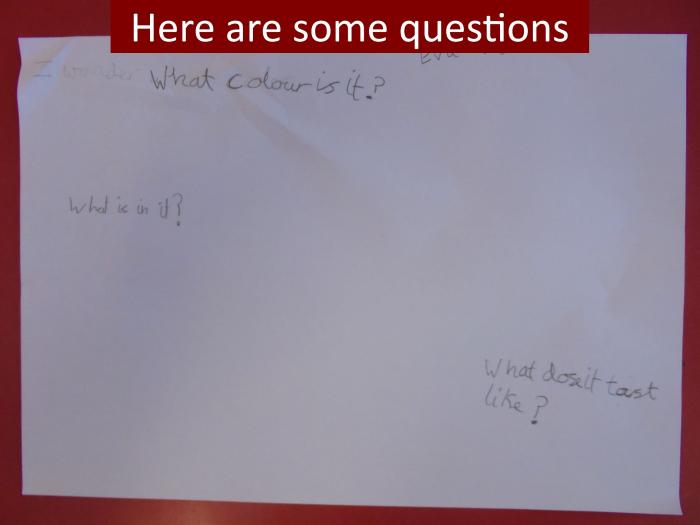
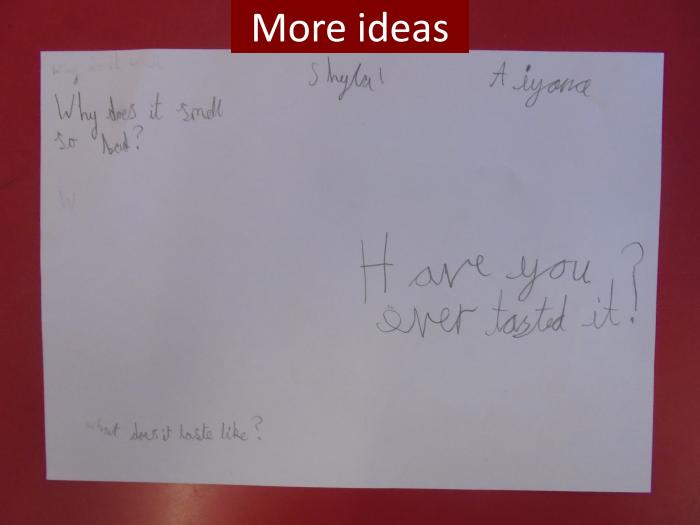
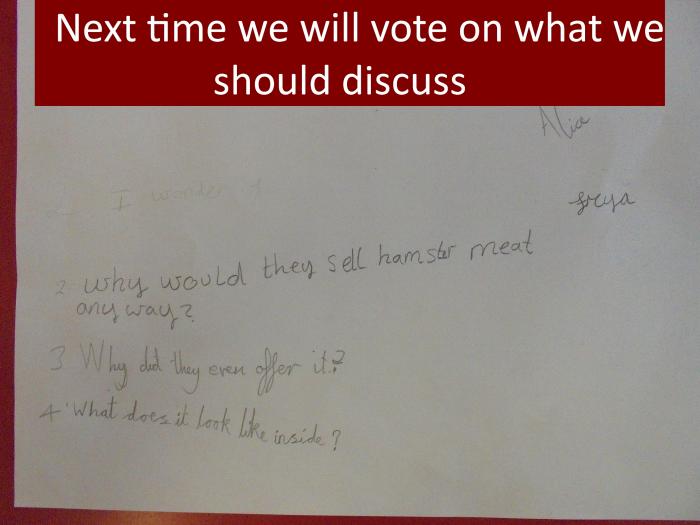
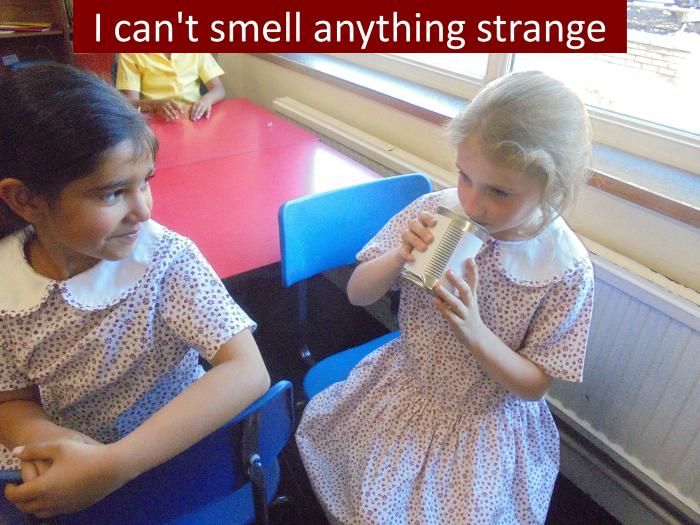
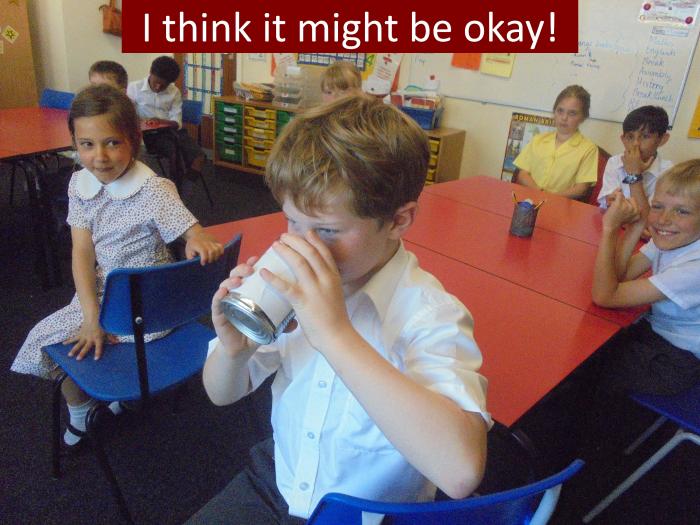
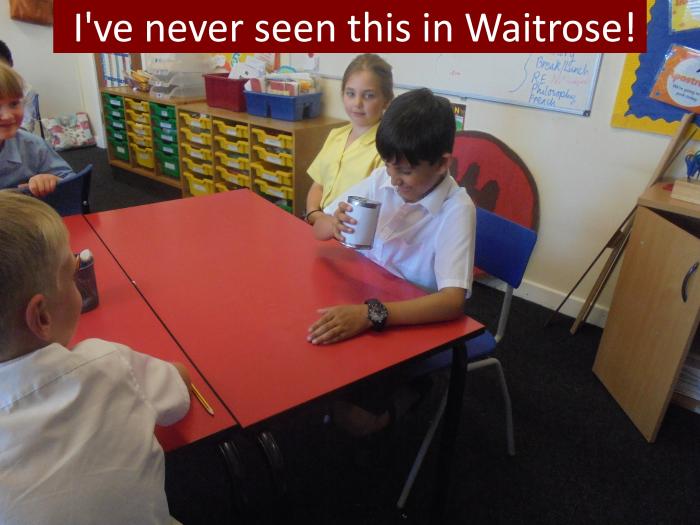
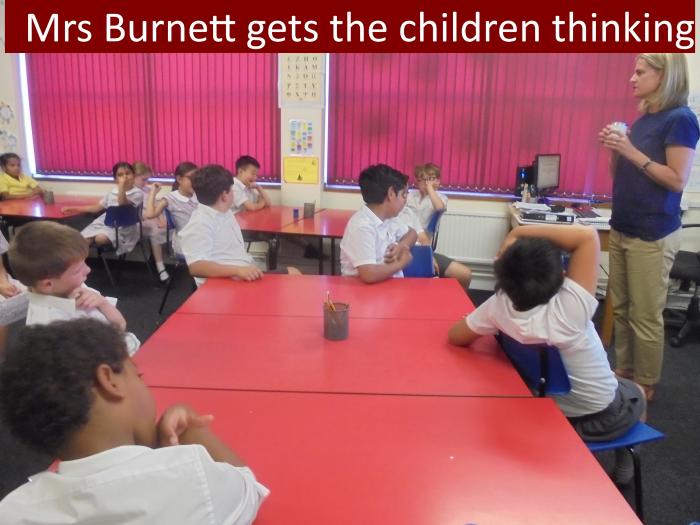
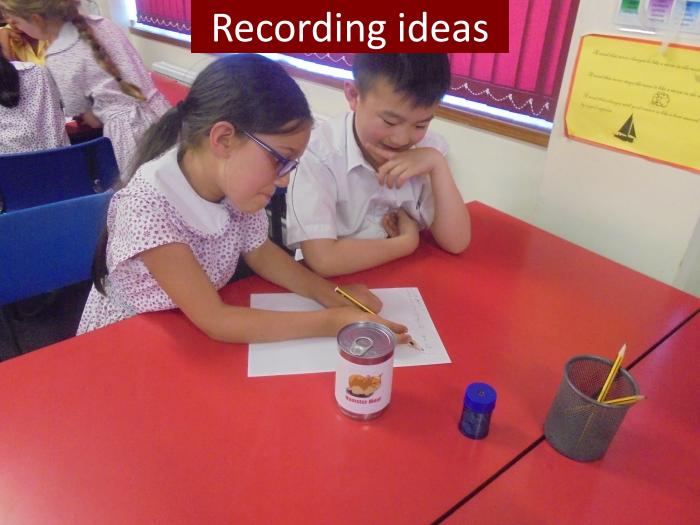
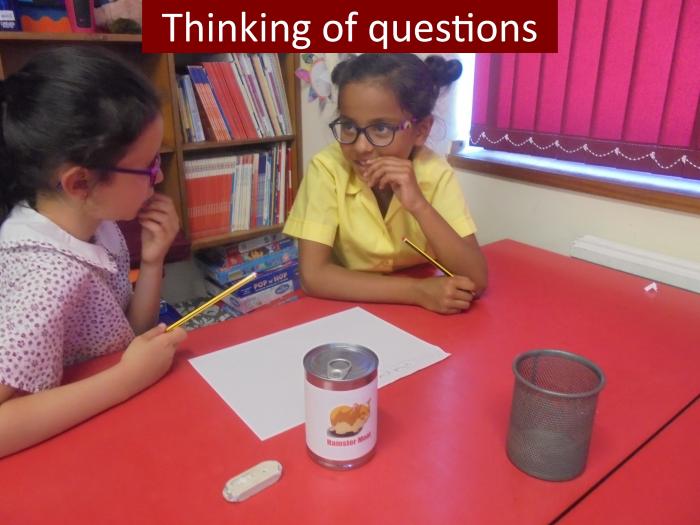
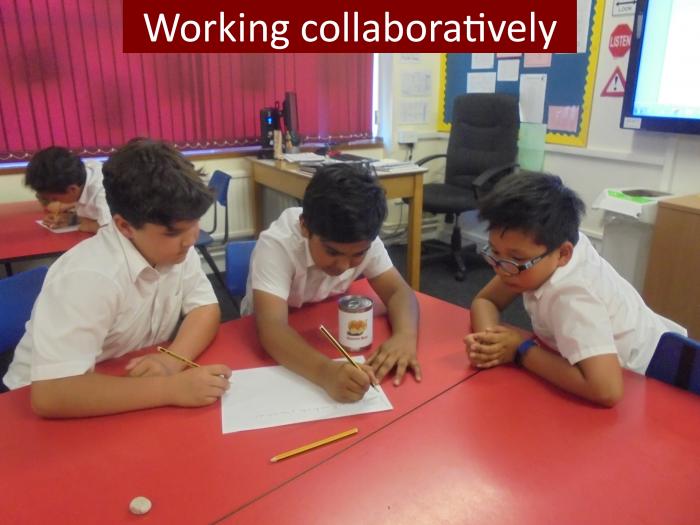
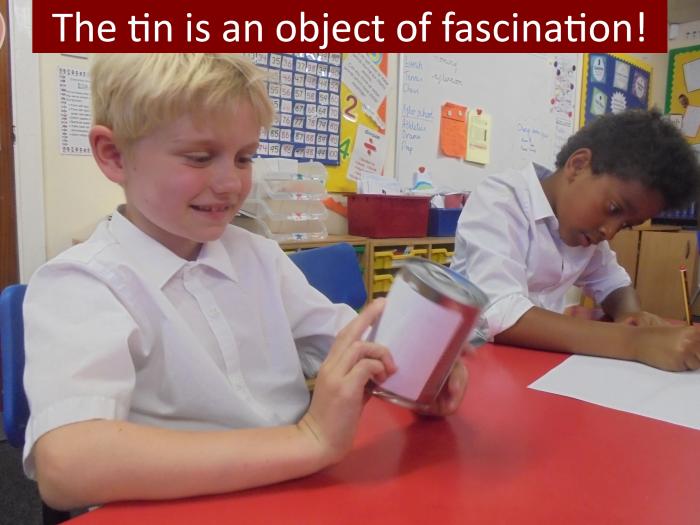
Surprising Ideas for Midweek Meals
Mrs Burnett had a surprise for her class at the beginning of their recent Philosophy lesson – a can of hamster meat! Or at least that was what it said on the label…
In Form 3, our Philosophy lessons this half term have been about challenging the assumptions that children have about food. The results have been fascinating, to say the least. In the previous session, Mrs Burnett placed a series of printed labels on the floor, which read successively ‘Strongly Agree’, ‘Agree’, ‘Unsure’, ‘Disagree’ and ‘Strongly Disagree’. She then presented the children with the statement ‘I’d eat a chicken sandwich’, and asked them to stand in the appropriate place to indicate their opinion. There followed an altogether more shocking statement: ‘I’d eat a hamster sandwich.’ Needless to say, there was immediately a great deal of movement between the labels, and ‘Strongly Agree’ was dramatically depopulated. To a large extent, the children were shocked because the idea of hamster meat is not something they would expect to encounter or would consider normal, although Dan was keen to inform the group that guinea pig is considered a delicacy in Peru and is, he assured everyone, particularly good with chips.
When the next lesson started, Mrs Burnett reminded the children of their views on eating a hamster sandwich. Then, to a chorus of horrified gasps and cries of ‘Urghh!’, she produced a can from the classroom cupboard clearly labelled ‘Hamster Meat’, and she invited the children to examine it. As the unusual food product was passed around the class, some people found it tempting to smell the can to check whether it gave off any unusual aromas. Others decided to shake it and pondered about the thick glugging sound made by the contents.
Mrs Burnett asked the children what they wondered about the can of supposed hamster meat. Karan was by no means certain it was real and Martin, too, had a feeling it could be fake. Daniel and HaoHao speculated as to where it might have come from. Was it from another country, perhaps? Nihaal questioned who came up with the idea of making hamster meat in the first place, whilst Dan struggled to think who would possibly want to eat it. Alice asked where this kind of food would be sold. Not in Waitrose or Tesco, surely, and certainly not in Marks and Spencer!
George voiced the question that was on everyone’s lips, namely whether or not there was actually a hamster inside the can. It certainly felt heavy enough. Daringly, William said he hoped that Mrs Burnett would open the can so people could see for themselves, but she refused.
The next step was for the class to split into small groups to devise a question or questions for discussion in the next lesson. Would it be possible, for instance, to eat hamster meat? Would it really be hygienic? What would it taste like? If food seems disgusting to us personally, is it necessarily wrong to eat? The discussion could also move onto the broader theme of whether it is right to eat animals or, indeed, whether it is acceptable to eat some animals but not others? Do animals, perhaps, have the right not to be eaten, and do we feel differently about the animals we consider to be pets?
Through the discussion, Mrs Burnett will be able to address more of the four C’s of philosophical thinking – caring, collaborative, critical and creative. Having studied Philosophy for almost a year now, the children understand the need to value each other’s views in a caring way, even if they don’t agree with them. They can work collaboratively, as they did to devise the questions, and they know how to listen critically and to challenge what they have heard. Above all, a discussion like this will push the children to think creatively in a supportive environment about things they have not considered before.
Finally, in case you are wondering, Mrs Burnett still has not opened the can, but she let me into her secret. There is no hamster meat inside. She relabelled a can of butter beans!